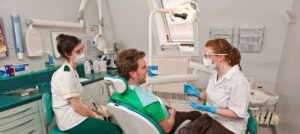Nursing Study Guide for Critical Care: Essential Skills & Concepts
This Nursing Study Guide provides essential knowledge and skills for critical care nurses who manage critically ill patients in high-acuity...
This Nursing Study Guide provides essential knowledge and skills for critical care nurses who manage critically ill patients in high-acuity settings such as intensive care units (ICUs) and emergency departments (EDs). Critical care nursing requires expertise in patient assessment, advanced monitoring, life-saving interventions, and effective communication with interdisciplinary teams. Mastering these essential skills ensures that nurses can provide high-quality care to patients with life-threatening conditions. This guide covers fundamental concepts, including airway management, hemodynamic monitoring, medication administration, and critical thinking in emergency situations.
1. Understanding Critical Care Nursing
Critical care nursing involves managing patients with severe and life-threatening conditions. These patients often require continuous monitoring, advanced medical interventions, and a multidisciplinary approach to care. Critical care nurses must be proficient in using complex medical equipment, interpreting diagnostic tests, and responding to emergencies.
1.1 Roles and Responsibilities
- Monitoring vital signs and recognizing abnormalities
- Administering medications and IV fluids
- Managing ventilators and life-supporting equipment
- Collaborating with healthcare teams, including physicians and specialists
- Providing emotional support to patients and families
2. Essential Critical Care Skills
2.1 Assessment and Monitoring
- Conducting thorough patient assessments
- Monitoring hemodynamic status (blood pressure, heart rate, oxygen saturation)
- Recognizing early signs of deterioration
2.2 Airway and Respiratory Management
- Intubation and extubation procedures
- Managing mechanical ventilation
- Recognizing signs of respiratory distress and failure
2.3 Hemodynamic Monitoring
- Understanding arterial lines, central venous pressure (CVP), and pulmonary artery catheters
- Interpreting electrocardiograms (ECGs)
- Managing hypotension and shock
2.4 Pharmacology in Critical Care
- Administering vasoactive drugs and sedatives
- Managing pain and sedation in critically ill patients
- Understanding drug interactions and contraindications
2.5 Infection Control and Prevention
- Implementing strict aseptic techniques
- Recognizing and managing sepsis
- Understanding isolation protocols
3. Key Concepts in Critical Care Nursing
3.1 Advanced Cardiac Life Support (ACLS)
- Understanding the ACLS algorithm
- Performing high-quality CPR and defibrillation
- Administering emergency medications
3.2 Trauma and Emergency Care
- Managing traumatic injuries
- Understanding the Glasgow Coma Scale (GCS)
- Recognizing and responding to shock states
3.3 Neurological Critical Care
- Assessing neurological status using the NIH Stroke Scale
- Managing increased intracranial pressure (ICP)
- Recognizing signs of stroke and brain injury
3.4 Ethical and Legal Considerations
- Understanding end-of-life care and advanced directives
- Managing do-not-resuscitate (DNR) orders
- Recognizing ethical dilemmas in critical care settings
4. Strategies for Studying Critical Care Nursing
4.1 Using Study Guides and Resources
- Reviewing textbooks and evidence-based practice guidelines
- Utilizing online courses and simulation training
4.2 Practicing Clinical Scenarios
- Engaging in case studies and role-playing exercises
- Participating in high-fidelity simulations
4.3 Joining Study Groups and Forums
- Collaborating with peers to reinforce learning
- Seeking mentorship from experienced critical care nurses
4.4 Time Management and Self-Care
- Balancing study time with rest and relaxation
- Managing stress effectively through mindfulness techniques
Conclusion
Critical care nursing is a demanding yet rewarding specialty that requires a solid foundation in clinical skills, medical knowledge, and compassionate patient care. By mastering the essential skills and concepts outlined in this guide, aspiring critical care nurses can enhance their ability to provide high-quality care in challenging healthcare environments. Continuous learning, hands-on experience, and dedication to professional growth are key to excelling in this field.



